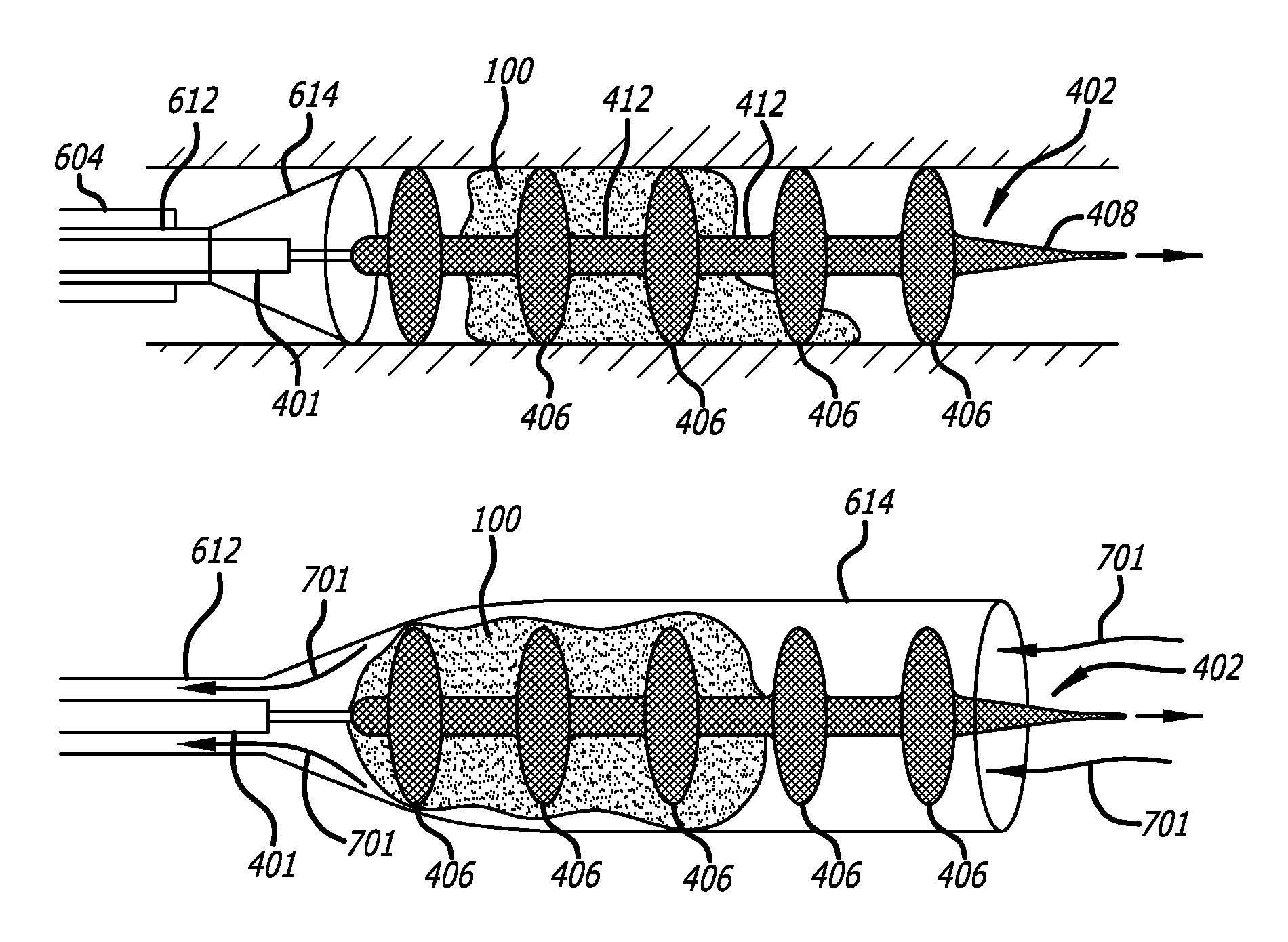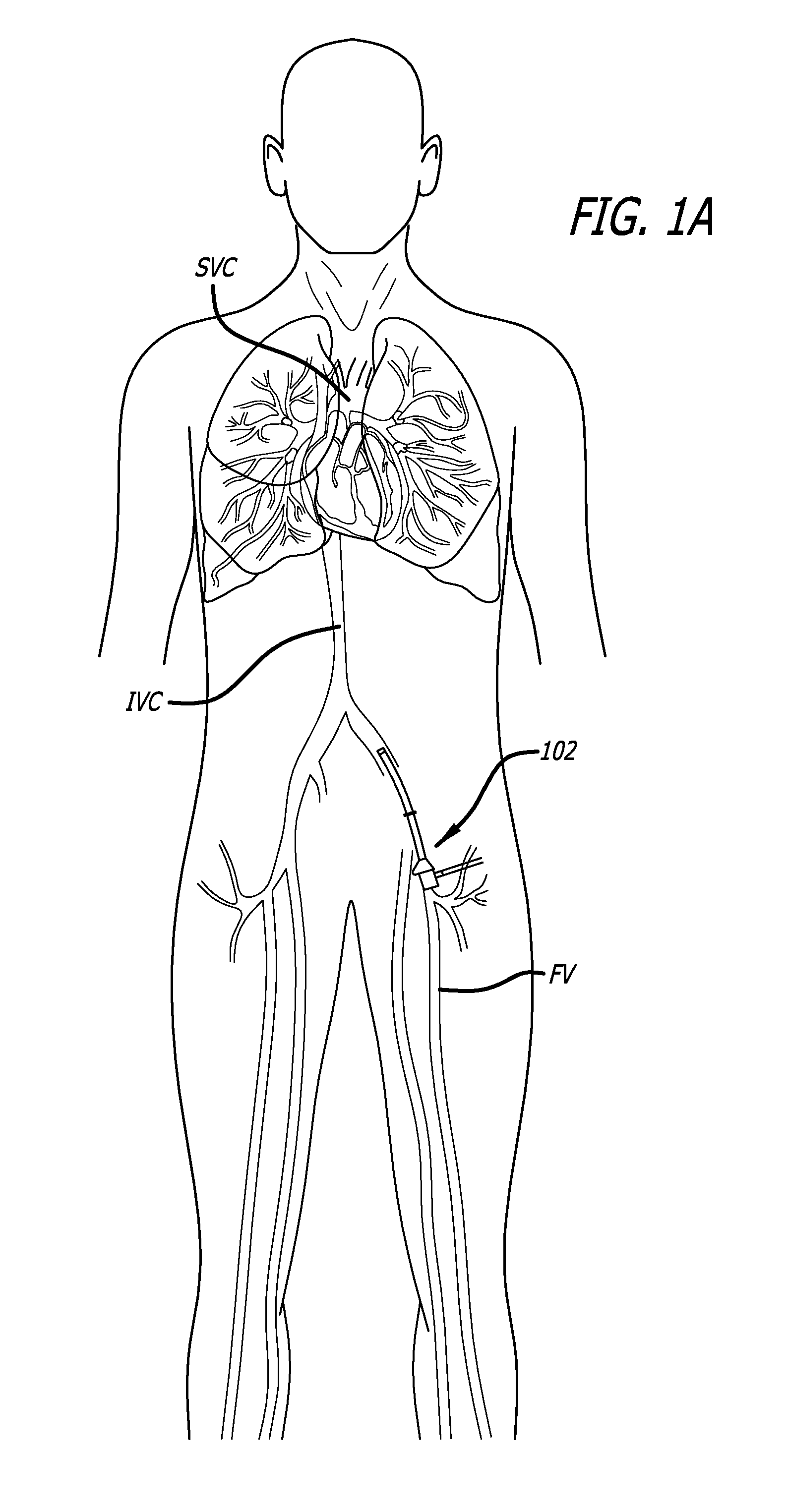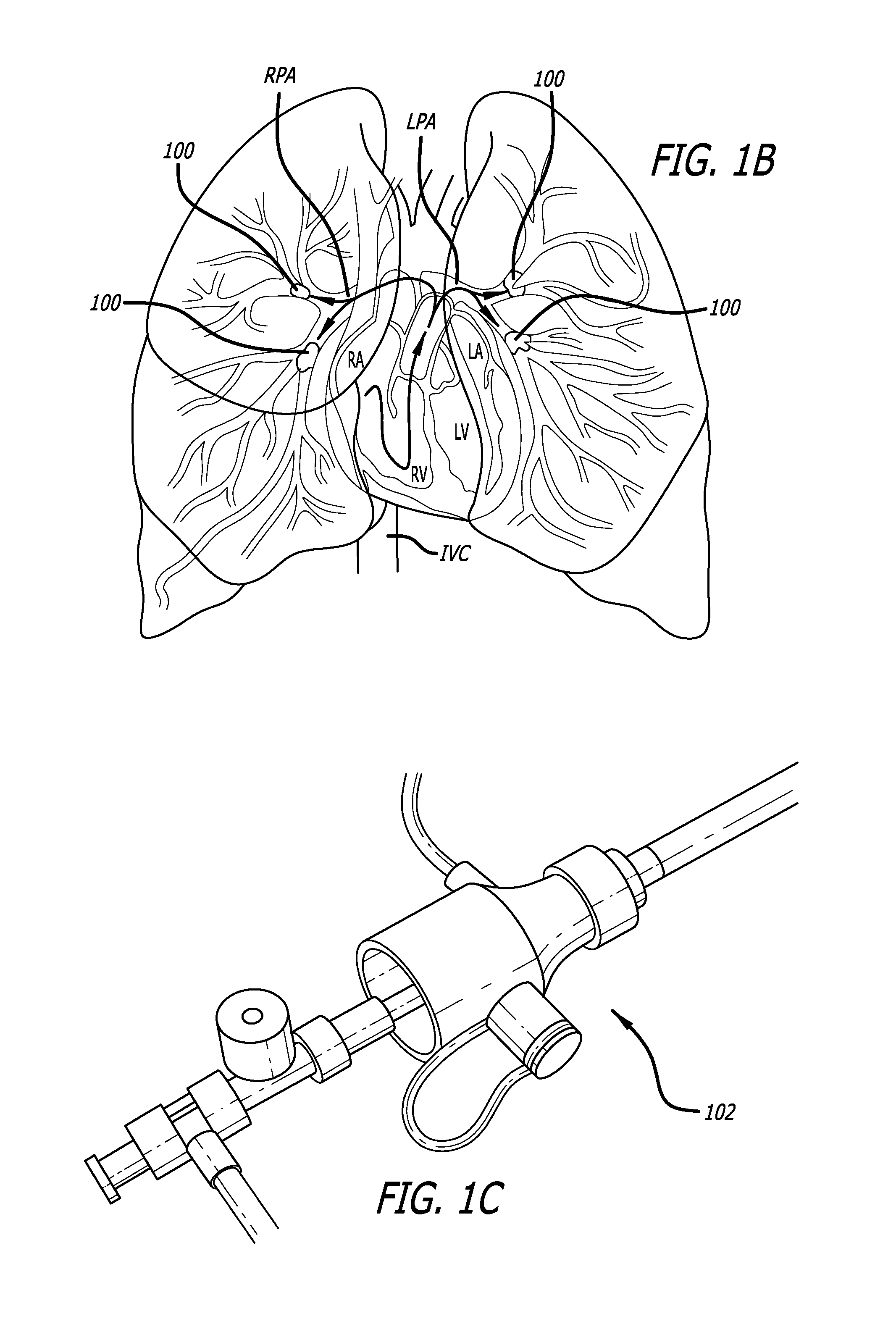Methods and apparatus for treating embolism
a technology of endovascular treatment and endovascular valve, which is applied in the field of endovascular treatment of pulmonary embolism, can solve the problems of thromboembolism being a significant cause of morbidity (disease) and mortality, clot or obstruction at the new location, and thromboembolism being a significant cause of death,
- Summary
- Abstract
- Description
- Claims
- Application Information
AI Technical Summary
Benefits of technology
Problems solved by technology
Method used
Image
Examples
Embodiment Construction
[0026]Specific embodiments of the invention will now be described with reference to the accompanying drawings. This invention may, however, be embodied in many different forms and should not be construed as limited to the embodiments set forth herein; rather, these embodiments are provided so that this disclosure will be thorough and complete, and will fully convey the scope of the invention to those skilled in the art. The terminology used in the detailed description of the embodiments illustrated in the accompanying drawings is not intended to be limiting of the invention. In the drawings, like numbers refer to like elements.
[0027]Referring to FIGS. 1A-1C, these drawings show the typical locations in a human patient where pulmonary embolisms 100 occur in the pulmonary arteries and further discloses the pathway through which access to such pulmonary embolisms 100 is achieved. In particular, an introducer device (e.g., a hemostatic valve) 102 which supports relatively large diameter...
PUM
 Login to View More
Login to View More Abstract
Description
Claims
Application Information
 Login to View More
Login to View More - R&D
- Intellectual Property
- Life Sciences
- Materials
- Tech Scout
- Unparalleled Data Quality
- Higher Quality Content
- 60% Fewer Hallucinations
Browse by: Latest US Patents, China's latest patents, Technical Efficacy Thesaurus, Application Domain, Technology Topic, Popular Technical Reports.
© 2025 PatSnap. All rights reserved.Legal|Privacy policy|Modern Slavery Act Transparency Statement|Sitemap|About US| Contact US: help@patsnap.com



